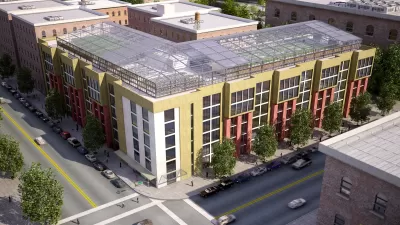The policies that create affordable housing for the middle class might not be those necessary to prevent homelessness for the destitute.

How many times have you read this argument?
Liberal: "We need more government spending to create affordable housing for the poor."
Conservative: "If we just had less government intervention, our city would be affordable, just like Houston or dozens of other cities- and then we wouldn't need government subsidies."
It seems to me that both sides are right—but that both sides are addressing entirely different problems.
Here in New York where I live, affordable housing is not just a problem for the very poor who are forced into homeless shelters—it is also a problem for middle (and even upper middle) class people who are forced into suburbia by skyrocketing rents. It seems to me that government subsidies are unlikely to solve the latter problem, because in an already highly-taxed city or state, the public would probably not tolerate the level of taxation required to make housing affordable for the majority of the city's population.
A better remedy is to allow more private sector housing construction. If the city's overall housing supply sufficiently increased, rents would eventually go down or at least stop rising, and the city would be more affordable for the middle class, just like our nation's relatively inexpensive inland cities.
But even if New York's rents declined to the level of Houston or Kansas City, there would still be homeless people. In fact: even Houston has thousands of homeless people, for the simple reason that even cheaper-than-average rents may be too expensive for people who are utterly destitute and/or incapable of taking care of themselves. These people will need public housing or significant government subsidies to be housed.
In sum, the issue of "affordable housing" is two separate and very different problems—housing for the middle class and housing for the poor. It seems to me that the remedies for one problem will not work for the other.

Planetizen Federal Action Tracker
A weekly monitor of how Trump’s orders and actions are impacting planners and planning in America.

Maui's Vacation Rental Debate Turns Ugly
Verbal attacks, misinformation campaigns and fistfights plague a high-stakes debate to convert thousands of vacation rentals into long-term housing.

San Francisco Suspends Traffic Calming Amidst Record Deaths
Citing “a challenging fiscal landscape,” the city will cease the program on the heels of 42 traffic deaths, including 24 pedestrians.

Defunct Pittsburgh Power Plant to Become Residential Tower
A decommissioned steam heat plant will be redeveloped into almost 100 affordable housing units.

Trump Prompts Restructuring of Transportation Research Board in “Unprecedented Overreach”
The TRB has eliminated more than half of its committees including those focused on climate, equity, and cities.

Amtrak Rolls Out New Orleans to Alabama “Mardi Gras” Train
The new service will operate morning and evening departures between Mobile and New Orleans.
Urban Design for Planners 1: Software Tools
This six-course series explores essential urban design concepts using open source software and equips planners with the tools they need to participate fully in the urban design process.
Planning for Universal Design
Learn the tools for implementing Universal Design in planning regulations.
Heyer Gruel & Associates PA
JM Goldson LLC
Custer County Colorado
City of Camden Redevelopment Agency
City of Astoria
Transportation Research & Education Center (TREC) at Portland State University
Jefferson Parish Government
Camden Redevelopment Agency
City of Claremont



























